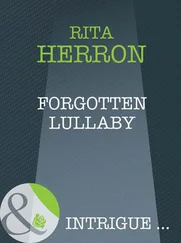Rita Monaldi - Imprimatur
Здесь есть возможность читать онлайн «Rita Monaldi - Imprimatur» весь текст электронной книги совершенно бесплатно (целиком полную версию без сокращений). В некоторых случаях можно слушать аудио, скачать через торрент в формате fb2 и присутствует краткое содержание. Жанр: Исторический детектив, на английском языке. Описание произведения, (предисловие) а так же отзывы посетителей доступны на портале библиотеки ЛибКат.
- Название:Imprimatur
- Автор:
- Жанр:
- Год:неизвестен
- ISBN:нет данных
- Рейтинг книги:5 / 5. Голосов: 1
-
Избранное:Добавить в избранное
- Отзывы:
-
Ваша оценка:
- 100
- 1
- 2
- 3
- 4
- 5
Imprimatur: краткое содержание, описание и аннотация
Предлагаем к чтению аннотацию, описание, краткое содержание или предисловие (зависит от того, что написал сам автор книги «Imprimatur»). Если вы не нашли необходимую информацию о книге — напишите в комментариях, мы постараемся отыскать её.
Imprimatur — читать онлайн бесплатно полную книгу (весь текст) целиком
Ниже представлен текст книги, разбитый по страницам. Система сохранения места последней прочитанной страницы, позволяет с удобством читать онлайн бесплатно книгу «Imprimatur», без необходимости каждый раз заново искать на чём Вы остановились. Поставьте закладку, и сможете в любой момент перейти на страницу, на которой закончили чтение.
Интервал:
Закладка:
This was a golden opportunity for my master, who had already squandered another such: after a difficult career in the kitchens of a wealthy cardinal, in which he had reached the enviable rank of deputy carver, he was dismissed because of his choleric character and his all- too-frequent intemperance.
Hardly had Pellegrino settled near the Donzello, waiting for the few passing guests to free the premises, than I was recommended to him by the parish priest of the nearby church of Santa Maria in Posterula. With the coming of the torrid Roman summer, his consort, who was indeed full of enthusiasm for the idea of becoming an innkeeper's wife, left for the Apennine mountains, where her parents still lived. They were due to return at the end of the month, and, in the meantime, I was the only remaining helper.
Of course, I could not be expected to be the best of apprentices: but I put my all into pleasing my master. Once I had finished the day's work, I willingly sought every opportunity to make myself useful. And since I did not care to venture out alone and face the dangers of the streets (above all the cruel jokes of those of my own age) I was, as the chirurgeon Cristofano had observed, almost always at work in the Inn of the Donzello. Nevertheless, the thought of being sequestered for a whole quarantine in those chambers, however familiar and welcoming, suddenly seemed to me an unbearable sacrifice.
In the meanwhile, the hubbub in the entrance had died down and we were soon rejoined by my master and all those who had engaged in that lengthy and useless waste of their strength. Cristofano's recent pronouncement was explained to them, which raised everyone's spirits, except my master's.
"I'll kill them, I'll kill them all," said he, again losing his temper.
He added that this misfortune had ruined him, for no one would ever again come to the Donzello, nor of course would it be possible to sell the hostelry's business, which had already been devalued by that accursed crack in the wall, and he would have to use up all his credit to obtain another such; in short, he would soon be poor and ruined, ruined forever, but first he would tell all to the College of Innkeepers, ah yes, even if they all knew that it was quite useless, quoth he, contradicting himself over and over, and I understood that he had unfortunately been at the Greco wine again.
The doctor continued: "We shall have to gather all the old man's blankets and clothing and tip them into the street when the dead- cart comes to collect the corpse."
He then turned to Pompeo Dulcibeni: "Did you meet or hear of infected persons coming from Naples?"
"Absolutely not."
The gentleman from the Marches seemed to be experiencing difficulty in hiding how deeply perturbed he was by his friend's death, which had, moreover, occurred in his absence. A veil of perspiration covered his forehead and his cheeks. The physician questioned him concerning a number of details: whether the old man had eaten regularly, whether his bodily functions were regular, whether he had been of melancholy humour; all in all, whether he had shown any signs of suffering other than those normally present in one of advanced age. But Dulcibeni was aware of no such thing. The man was rather massive, always wearing a black great-coat; but above all made to look awkward and cumbersome by a very old gorget of Flemish lace (as I believe must have been the fashion many, many years ago) and by his bulging paunch. This, together with his florid complexion, made one suspect a propensity for food not inferior to my master's for the Greco wine. Thick hair, now almost all white, a tendency to take umbrage, a slightly fatigued tone of voice and a grave and pensive expression conferred on him the semblance of an honest and temperate man. Only with the passing of time and closer observation was I to see in his severe blue-green eyes and ever-frowning eyebrows the reflection of a concealed and ineradicable bitterness.
Dulcibeni said that he had met the late Signor di Mourai quite by chance, in the course of a voyage, and he did not know much about him. Together with Signor Devize, he had accompanied him from Naples; for the old man, being almost completely blind, was in need of assistance. Signor Devize, the musician and guitar player, had, affirmed Dulcibeni (with Devize nodding agreement), come to Italy to acquire a new instrument from a Neapolitan lute-maker. Later, he had expressed the desire to stay in Rome in order to learn the most recent musical styles, before returning to Paris.
"What will happen if we go out before the end of the quarantine?" I asked.
"Attempting to flee is the least advisable solution," replied Cristofano, "since all the ways out are sealed, including the passage that leads from the tower where Monna Cloridia lives on to the roof. The windows are too high or have been covered with grating, and the watch is patrolling below. What is more, attempting to escape from quarantine incurs an exceedingly severe punishment, and one would be imprisoned under far worse conditions for years and years. The people of the quarter would help recapture any fugitive."
Evening shadows were falling, and I distributed lamps and oil.
"Let us endeavour to keep up our spirits," added the Tuscan chirurgeon, looking meaningfully at my master. "We must give the impression that all goes perfectly with us. If nothing changes, I shall not examine you-not unless you so request. Should there be other cases of ill health, I shall have to do so for the sake of us all. Warn me if ever you feel unwell, even if it seems to be a mere trifle. For the time being, however, it will do no good to worry, for this man," said he, pointing at the inert body of Signor di Mourai, "did not die of the plague."
"What, then, did he die of?" asked Abbot Melani.
"Not of plague, I repeat."
'And how do you know, Doctor?" responded the abbot, distrustfully.
"We are still in summer and it is quite hot. If this were plague, it would be of the summer variety, which is caused by the corruption of natural heat and provokes fevers and headaches. In such cases, the cadavers at once become black and hot, and present tokens that are also black and putrescent. But this man has not the shadow of a token, or an abscess, a botch, a swelling or whatever you might wish to call it; neither under the armpits, nor behind the ears, nor in the groin. There was no rise in temperature, nor burning. And, from what his companions have told me, he seemed quite well until within hours of his death. That, as far as I am concerned, is sufficient to rule out contagion with the plague."
"Then it is another illness," replied Melani.
"I repeat: in order to understand that, it would be necessary to have recourse to anatomy: to open up the body and examine it from the inside; in other words, as the chirurgeons do in Holland. On the face of it, I could diagnose an acute attack of putrid fevers, which shows no signs until it is too late for any remedy. Yet I can find no sign of putrefaction on the body or bad odours other than those of death or old age. I might perhaps suppose it to be the malady of mazzuco, or modoro, as the Spaniards call it: that causes an aposteme, which is to say, an abscess within the brain, and is thus invisible. And once that is present, death must ensue. If, on the other hand, the illness is at the stage of its initial symptoms, it can be easily remedied. Had I been informed of it even a few days ago, I might perhaps have been able to save him. It would have sufficed to bleed one of the two veins under the tongue, to administer in his beverage an infinitesimal quantity of oil of vitriol, and to anoint stomach and head with holy oil. But, as far as we can see, old Mourai showed no signs of being unwell. Besides…"
"Besides?" urged Melani.
"Mazzuco certainly does not cause a swelling of the tongue," concluded the chirurgeon with a telling grimace. Perhaps it is… something very like poison."
Читать дальшеИнтервал:
Закладка:
Похожие книги на «Imprimatur»
Представляем Вашему вниманию похожие книги на «Imprimatur» списком для выбора. Мы отобрали схожую по названию и смыслу литературу в надежде предоставить читателям больше вариантов отыскать новые, интересные, ещё непрочитанные произведения.
Обсуждение, отзывы о книге «Imprimatur» и просто собственные мнения читателей. Оставьте ваши комментарии, напишите, что Вы думаете о произведении, его смысле или главных героях. Укажите что конкретно понравилось, а что нет, и почему Вы так считаете.












